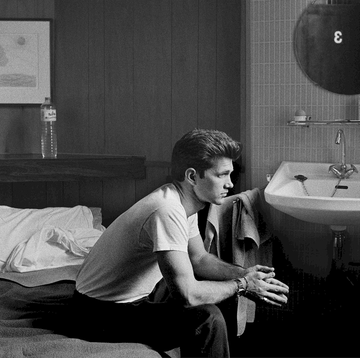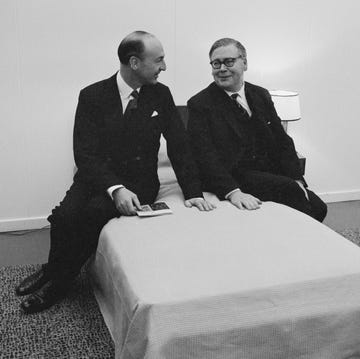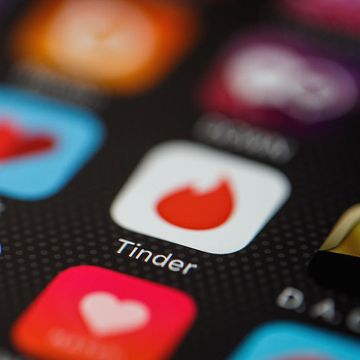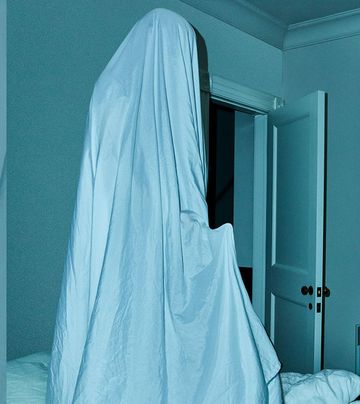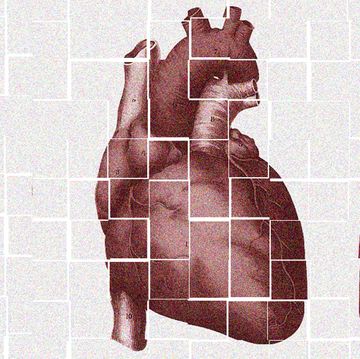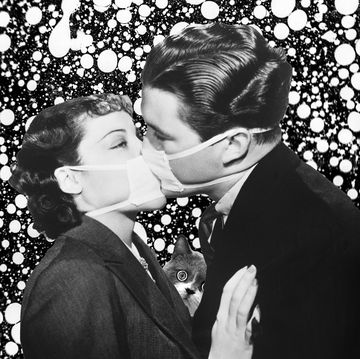Long ago I ripped off the plaster. So I say this with authority: Whatever you do, do not rip off the plaster.
I was in a conservative, Catholic community, in my case a very small, very homogeneous New England college. Once I figured out that my sexuality wasn't a phase—that it wasn't going away and didn't need to—I came out. I told everyone I could, pretty much all at once. I was in a great big hurry to get it all over with, and my reasoning—if you can even call it that—was that once I started the conversation, someone else would join it. My successful coming-out would lead someone else to do the same, and that guy would be perfect in every way, and he would be my boyfriend, and I'd be able to show him off to my family and friends and say, "See? Everything is fine."
I didn't come out from a place of security or bravery or joy. I came out from a place of loneliness and brokenness and need. I wasn't anywhere near ready, I was just sending up a flare and hoping someone who was ready would come scoop me up. I met my first other gay man and told him I was in love with him about nine seconds into our first conversation. I went to my first gay bars and was furious that they weren't exactly what I wanted them to be. I was a depressive, panicky, nightmare tornado person on my best day. I was a lot of fun to be around in 1992.
Now, I can forgive myself for all of this. It makes sense that I would behave the way I did. Growing up as a gay kid in the 1980s—a time of hate crimes and AIDS jokes and Lamar Latrelle—was terrifying and isolating. My heart was the last can of beer, bouncing around an empty cooler in the trunk of a hot car for a good decade and a half. My contents had been under pressure, and when I finally popped the top, I made a great big mess. And when I look around at the world 25 years later, I can't say the situation is a whole lot better.
Consider this: You have spent your formative years being lied to about yourself. You have lived in a culture that, when it is not actively working to erase gay people, loads them up with self-doubt and panic. Actual elected officials (in America) call you a threat to the traditional family, and then people tell you, "They're just playing to the crowd," as though that made it better. Fox News edits the Pride Parade down to its ten most salacious seconds to freak out your grandparents.
Your allies don't do much better. Gay characters in movies and television shows are usually jokes or sexless or villains or all three. Your self-proclaimed heroes tell you "don't be a drag, just be a queen," as though those were your only two options. You're still expected to be a vivacious little quip machine with a YouTube channel. People are certain about who you're supposed to be before you've decided any of it for yourself, and if your reality doesn't match up with what they've constructed in their imagination from snippets of Mean Girls and RuPaul's Drag Race, they think something is wrong with you.
You have done more soul-searching, behaviour calibration, and swallowing of emotion in your average afternoon than most people do in a lifetime, and you have done it all alone. You couldn't rely on your parents or teachers or friends, so in many important ways, you were forced to raise yourself. And check you out: You've gotten through it alive, and you've decided to let the rest of the world in. I'm proud of you.
But the process of coming out need not be quick and painful, nor drawn-out and painful, so let's dispense with the plaster metaphor entirely. Instead, let us imagine scuba diving. When you're ascending from a deep dive, you need to do it slowly, just a couple of feet per second. You're supposed to hang out at 15 feet for a few minutes before you finally come up for air. You have to let the nitrogen in your body flush itself out so it doesn't poison you, and stay in control of your buoyancy so you don't rocket to the surface before your body is ready. You can really get hurt if you come up from the depths too quickly.
So it is with coming out. You've been deep—much deeper than you realise—in a dark, confusing abyss. You've been floating, suspended, silent. Some of it has been beautiful, and some of it has been hideous. But soon you will breathe fresh air. Soon you will have your feet on solid ground.
You must take your time with it. Before you go any further, lean on the people you've already told. If you're scared or lonely or angry, talk to them about it. I would imagine that you are highly skilled at putting a good face on a bad situation. Good for you. Now stop it. The world has filled you with facts and feelings about yourself that are absolutely false, and if you don't release them now, they will poison you. Be honest about what you're going through with the few people you trust the most, and don't tell a single other person until you're absolutely ready.
Get out into the world of gay clubs and bars, or whatever remnants of it Grindr has left in its wake. Some of it is going to make perfect sense to you. Some of it is going to be ridiculous. But the gay bar in your town doesn't need to reflect and satisfy you perfectly. Your place in the Wide World of Gay is going to be uniquely yours. Nobody else gets to tell you who to be or how to express yourself.
Go on a date or two. Grindr is here after all; you might as well use it. (Public places only at first, text your location to a trusted friend.) Though it is natural to expect a soulmate right out of the gate, don't go into it desperate to fall in love. More likely, you'll make a friend who's just as confused as you, and you'll have someone with whom to navigate this perplexing, frustrating world.
Do it all slowly, consciously, with intention. Rise to the surface a couple of feet at a time, and when you're finally ready to tell the rest of your family, you'll be doing it from a place of strength. Should the reaction be negative, you'll be secure enough in your identity to survive it. But the reaction probably won't be negative; the confidence you will have gained by following your own path at your own pace will be contagious. You'll be happy, so the people who love you will be happy.
Take your time. I am so, so excited for you.


